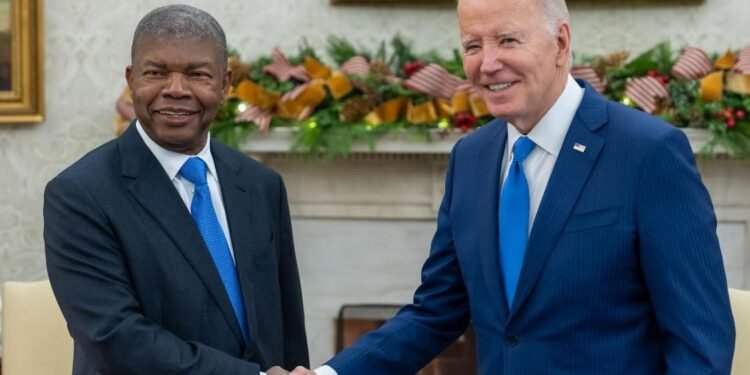
US President Joe Biden is visiting Angola in a historic milestone that underscores a strengthening partnership, with a particular emphasis on security cooperation. This unprecedented visit reflects the Biden administration’s commitment to enhancing bilateral relations and addressing shared security challenges.
Biden arrived in Angola on 2 December and today (3 December) is due to travel to Lobito for a summit on infrastructure investment in the region with leaders from Angola, Democratic Republic of the Congo (DRC), Tanzania, and Zambia. Many announcements are expected, including on US-Angola security cooperation.
The United States and Angola have been expanding their defence ties through strategic initiatives and joint programmes aimed at bolstering Angola’s capacity to maintain stability within its borders and contribute to regional peace. As a senior US administration official noted, “Angola is an indispensable partner in promoting regional security and addressing global challenges, from maritime safety to combating transnational crime.”
Recent developments have solidified Angola’s role as a vital partner in US defence cooperation. In June 2024, the inaugural Joint Angolan-American Defence Cooperation Committee (DEFCOM) meeting marked a significant step forward, with both countries signing an agreement to exchange logistics goods and services between their militaries. The collaboration extends to critical areas such as peacekeeping, cyber defence, engineering, and the development of Angola’s nascent coast guard.
In September 2024, Angola joined the US Department of Defence’s State Partnership Programme (SPP), further integrating its military efforts with those of the United States. This partnership promotes interoperability and strengthens governance, reflecting Angola’s growing commitment to regional stability.
“Through initiatives like DEFCOM and the SPP, Angola is not only enhancing its national defence but also becoming a beacon of security in sub-Saharan Africa,” a senior official remarked.
Maritime security and military professionalisation is another aspect of this relationship. Maritime security has emerged as a critical area of collaboration. The US is equipping Angolan marines with eight rigid-hull inflatable boats, with deliveries ongoing until the end of 2025. These assets are complemented by training programmes focused on operational effectiveness and safety in maritime operations.
Since 2020, the United States has invested nearly $17 million in military training and professionalisation programmes in Angola. This includes English language training, expanding opportunities for women in military education, and targeted maritime security training.
The US is enhancing its security cooperation with Angola through the International Military Education and Training (IMET) programme, which facilitates professional military education and technical training for Angolan defence personnel. This initiative aims to strengthen Angola’s defence capabilities, promote interoperability with international forces, and foster a deeper understanding of democratic principles and civilian oversight of the military. By investing in capacity building through IMET, the US supports Angola’s efforts to address regional security challenges, including maritime security and transnational threats, while laying the groundwork for stronger bilateral relations and regional stability in southern Africa.
Then there is the issue of countering emerging threats. The US is also supporting Angola in addressing emerging security threats such as cybercrime. A $1.4 million US-backed initiative is aiding Angola in developing a national cybersecurity strategy and enhancing its cyber defence capabilities. These efforts are complemented by ongoing collaborations in combating transnational crime, such as timber trafficking, through advanced training and enforcement programmes.
When it comes to regional leadership, Angola’s inclusion in the US-led Partnership for Atlantic Cooperation highlights its strategic role in fostering a secure and prosperous Atlantic region. This initiative, coupled with Angola’s growing military capabilities, positions the country as a key player in regional peacekeeping and maritime security.
In the words of a senior US official, “Our partnership with Angola serves as a model for how two nations can work together to build a safer, more secure world.”
As Angola and the US deepen their defence partnership, the impacts extend beyond bilateral relations. These initiatives contribute to regional stability, enhancing Angola’s ability to address threats independently and in collaboration with international partners. President Biden’s historic visit to Angola symbolises a shared commitment to security, resilience, and prosperity in sub-Saharan Africa.
For Angola, these engagements provide a platform to showcase its growing role in regional security architecture. As both nations look to the future, their collaboration in defence and beyond represents a critical step toward a more stable and secure Africa.
Pearl Matibe is a Washington, DC-based foreign correspondent, and media commentator with expertise on U.S. foreign policy and international security. You may follow her on Twitter: @PearlMatibe










